Podcast: Play in new window | Download (Duration: 25:43 — 23.7MB) | Embed
Subscribe: Apple Podcasts | Spotify | Amazon Music | Android | Pandora | iHeartRadio | JioSaavn | Podchaser | Gaana | Podcast Index | Email | TuneIn | Deezer | Anghami | RSS | More

Day 9, Part 2 – The Last Retreat by St. Elizabeth of the Trinity- Beginning to Pray with Dr. Anthony Lilles
Dr. Anthony Lilles and Kris McGregor continue their discussion on the ninth day of The Last Retreat by St. Elizabeth of the Trinity. St. Elizabeth reflects on God’s call to holiness, rooted in His revelation to Moses as “I AM.” She sees holiness not as a distant, unattainable state, but as a loving invitation from God to walk in His presence and be transformed by His life. This journey involves trusting in God’s presence, especially in trials and desolation, and choosing to act with love even in darkness, confusion, or suffering. St. Elizabeth’s spirituality is deeply relational—centered on communion with God who desires union with the soul.
Living in God’s presence reshapes daily life, helping us respond to pain, betrayal, and spiritual attacks with faith rather than fear. Pride and ego are presented as obstacles to divine love, and St. Elizabeth’s invitation is to let go of self and allow God’s life to flourish within.
Discerning Hearts Reflection Questions
- How do I respond to God’s invitation to walk in His presence each day?
- In what ways do I recognize God’s holiness as a personal call to transformation?
- When facing fear or confusion, do I choose to believe God is present with me?
- What areas of my life reveal an attachment to control, approval, or comfort?
- How do I handle spiritual desolation or moments when God feels absent?
- Do I allow my ego to get in the way of loving others or receiving God’s love?
- How might practicing humility help me die to self and live more fully in Christ?
- What “arrows” or spiritual attacks have I faced, and how did I respond in faith?
- Can I see trials and sufferings as opportunities for deeper union with God?
- How am I being invited today to let go of self and become who God created me to be?
From “Last Retreat Day 9 pt 2” found in The Complete Works vol 1:
“23. Speaking to Abraham God said: “Walk in My presence and be perfect.” 134 This then is the way to achieve this perfection that our Heavenly Father asks of us! St. Paul, after having immersed himself in the divine counsels, 135 revealed exactly this to us when he wrote “God has chosen us in Him before the creation of the world, that we might be holy and immaculate in His presence in love.” 136 It is also by the light of this same saint that I will be enlightened so that I might walk without deviating from this magnificent road of the presence of God on which the soul journeys “alone with the Alone,” 137 led by the “strength of His right arm,” 138 “under the protection of His wings, without fearing the terror of the night nor the arrow that flies by day, nor the evil that stalks in darkness, nor the attacks of the noonday devil. 139
24. “Strip off the old man in whom you lived your former life, “ he tells me, “and put on the new man, who has been created according to God in justice and holiness.” 140 This is the way set forth; we have only to strip off self to follow it as God wills! To strip off self, to die to self, to lose sight of self. It seems to me the Master meant this when He said: “If anyone wants to follow Me, let him take up his cross and deny himself.” 141 “If you live according to the flesh,” the Apostle also says, “you will die, but if you put to death in the spirit the works of the flesh, you will live.” 142 This is the death that God asks for and of which it is said: “Death has been swallowed up in victory.” 143 “O death,” says the Lord, “I will be your death”; 144 that is: O soul, my adopted daughter, look at Me and you will forget yourself; flow entirely into My Being, come die in Me that I may live in you!”
Elizabeth of the Trinity (2014-07-24). Elizabeth of the Trinity Complete Works, Volume I: I Have Found God, General Introduction and Major Spiritual Writings (Kindle Locations 3353-3374). ICS Publications. Kindle Edition.
We would like to thank Miriam Gutierrez for providing “the voice” of St. Elizabeth for this series
For other episodes in the series visit the Discerning Hearts page for Dr. Anthony Lilles
Anthony Lilles, S.T.D., has served the Church and assisted in the formation of clergy and seminarians since 1994. Before coming to St. Patrick’s, he served at seminaries and houses of formation in the Archdiocese of Denver and the Archdiocese of Los Angeles. The son of a California farmer, married with young adult children, holds a B.A. in theology from the Franciscan University of Steubenville with both the ecclesiastical licentiate and doctorate in spiritual theology from the Pontifical University of Saint Thomas Aquinas in Rome (the Angelicum). An expert in the writings of St. Elizabeth of the Trinity and the Carmelite Doctors of the Church, he co-founded the Avila Institute for Spiritual Formation and the High Calling Program for priestly vocations. He also founded the John Paul II Center for Contemplative Culture, which hosts symposiums, retreats, and conferences. In addition to his publications, he blogs at www.beginningtopray.com .



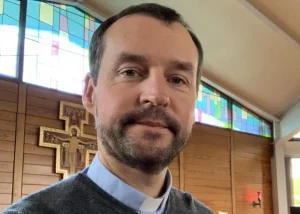
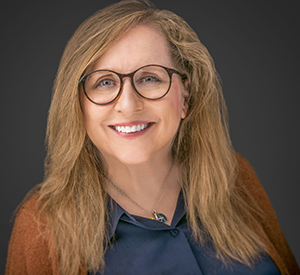
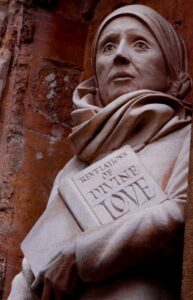

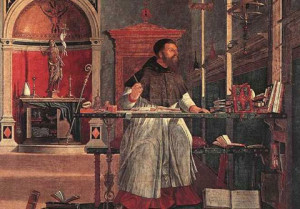
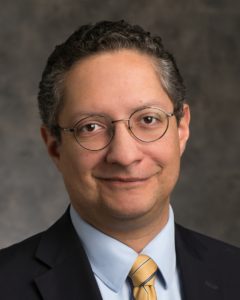
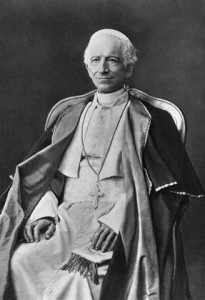 About Pope Leo XIII
About Pope Leo XIII